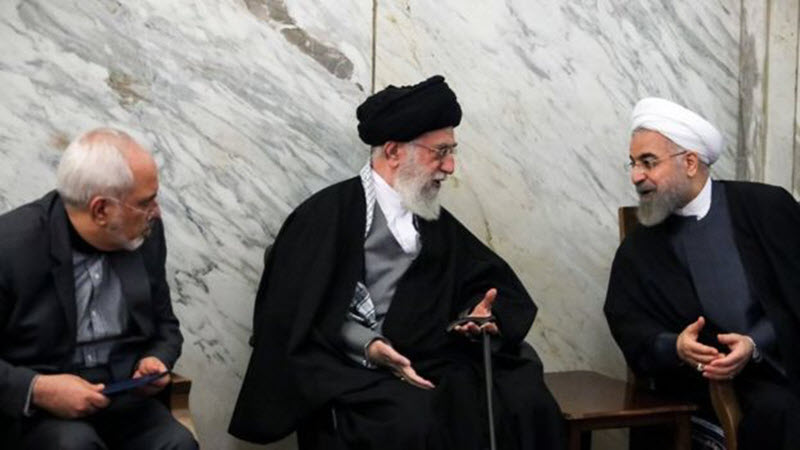
By Armin Baldwin
The internal disputes in the Iranian regime are becoming more and more frequent and increasingly public. Top level officials in Iran cannot agree on the right course of action and there are insults and criticisms being sent backwards and forwards.
Mohammad Javad Zarif, the Iranian Foreign Minister, announced his resignation on his Instagram page at the end of February. He said he was sorry for the “shortcomings” of his time in office. He said: “I apologise for not being able to continue in the post and for all the shortcomings and flaws in the period.”
However, President Hassan Rouhani rejected Javad Zarif’s resignation saying that it goes against the national interests of the country.
Earlier this week, a speech made last year by Iran regime’s Leader, Ali Khamenei, was made public. In it, the Supreme Leader expressed his doubts and scepticism regarding the direction the country’s government is taking with regards to Iran’s diplomatic overtures to Europe.
In his speech from the summer last year, the Supreme Leader said that there would be difficulties with the EU because of its ability, or inability, to make good on its promises to protect trade and business with Iran after the U.S. sanctions took effect.
His position differed to that of Rouhani who was committed to keeping the deal in place despite the United States’ exit from the nuclear agreement. He was positive that the EU was going to take steps to ensure that trade does not suffer.
The Supreme Leader obviously – with the publication of this speech from last year – is trying to point out that he was right and that Rouhani and his government were mistaken although as Rouhani has repeatedly stated and every Iranian knows, the main decision maker in the regime is Khamenei himself.
Khamenei has always been strongly against the West and he has not hidden the fact. He hypocritically pretended to be very reluctant for his regime to sign the Joint Comprehensive Plan of Action (JCPoA) and begrudgingly got involved (behind the scenes) on the negotiations. He does not trust the Europeans, or the Americans, and is very wary of Rouhani’s relations with the West.
In his speech last year, Khamenei said that the JCPoA did nothing to resolve the economic issues that the country is facing. He then went on to speak about the mechanism that the EU signatories of the deal (France, the United Kingdom and Germany) were setting up to facilitate trade and financial transactions with Iran. He said that it would also not make a difference to the country’s economy.
The Iranian regime is one of the most corrupt in the world and it is no wonder that the nuclear deal has not helped Iran’s economy improve. The billions of dollars that were freed up when the previous sanctions were lifted after the deal was signed were plundered on terrorist activities and the support of proxy groups and militias across the region.
The regime is at an impasse and the fighting between the factions is making the situation even more resolute. There is no way the regime can overcome the hurdles it is facing and it is only a matter of time before it collapses.







